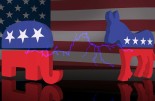Harry Geels: Why redistribution increases inequality
Harry Geels: Why redistribution increases inequality

This column was originally written in Dutch. This is an English translation.
By Harry Geels
Something contradictory seems to be going on: while the government is increasing its role in the economy, inequality is growing. Are so-called socialist policies actually promoting inequality in practice?
We live in a time when the government plays a greater role than ever before, with high taxes, redistribution, and extensive regulation. Yet inequality is on the rise. How is this possible? Supporters of the Austrian school blame socialism. They argue that socialist policies are counterproductive for three reasons. Let's briefly discuss them and consider an ominous prediction by Ludwig von Mises, a well-known proponent of the Austrian School, which seems to be slowly coming true.
Three inherent problems with socialism
Socialism (or communism) faces three challenges to which it has no real answer. First, this ideology distorts the price signals from the free market, in which thousands, if not millions, of people gather and process information in an objective manner (at least, if the authorities do not intervene in the market). Due to the lack of objective, “wisdom-of-the-crowd” market information, there is no optimal allocation of capital in the economy.
Secondly, socialism overestimates the effectiveness and efficiency of government planning and government activities, partly because objective market information is not available and partly because of bureaucracy. Thirdly, socialism inhibits innovation and progress by undermining the positive incentives that come from private property and profit and loss. If people are unsure about this, entrepreneurship is discouraged. Bailouts are also disastrous because they increase systemic risks.
Redistribution does not lead to less inequality
Probably the most important argument against socialism is the “redistribution paradox.” In systems that are strongly influenced by socialism—which includes Western economies—we see that collecting and redistributing taxes leads to an opaque and unequal distribution of wealth. Look at Figure 1, where the strong growth of government since the early 1970s (measured as government spending versus GDP) has been accompanied by an increase in inequality.
Figure 1

The redistribution paradox can be explained by the fact that an ever-expanding government and political system serve a variety of interests. Rules and supervision are put in place, subsidies are granted, bailouts are carried out for companies that are ‘too big to fail’, tax avoidance is facilitated (for example through ‘tax rulings’) and – knowing that there is a large pot of government money available – lobbying naturally takes place, with large companies and wealthy individuals having more lobbying power than smaller and less fortunate ones.
The frayed edges of the free market
Of course, the free market, the logical alternative to socialism, also has its frayed edges. For example, there is a real chance that certain companies will gain too much power, eliminating healthy competition. It was not for nothing that one of the greatest advocates of free markets, Milton Friedman, warned against Big Business and especially Big Government, because they can corrupt each other, leading to undesirable ‘wealth transfers’ and limiting competition.
Secondly, there is a danger that ‘common goods’ will be ‘abused’ by companies because they are too cheap. One of the few tasks of the government is to ensure that so-called externalities are properly priced. Environmental damage must be compensated before billions are paid out to shareholders. The large profits that banks make thanks to their privilege of creating money must be returned to society, for example through a bank tax.
Predictive words of Von Mises
It was Ludwig von Mises, among others, who demonstrated at the beginning of the last century that socialism is inherently flawed, partly because of the aforementioned lack of market information, which prevents entrepreneurs and governments from making good decisions. But Von Mises went further. He also examined the sociological and political consequences of socialism. He argued that socialism will lead to the erosion of individual freedom.
This is because government planning and government activities lead to coercion (including the coercion of taxes). This leads to political conflicts, in effect battles over who controls government plans. Foreign trade becomes a sham. Civil discontent arises, which in turn leads to authoritarian leadership. Worse still, it leads to conflicts between states, because as countries become more socialist, they also become more threatened by capitalist countries, which can even lead to war.
In Socialism, Von Mises writes: “A socialist world cannot coexist with a capitalist world; it must strive for universal control.”
This article contains the personal opinion of Harry Geels.








